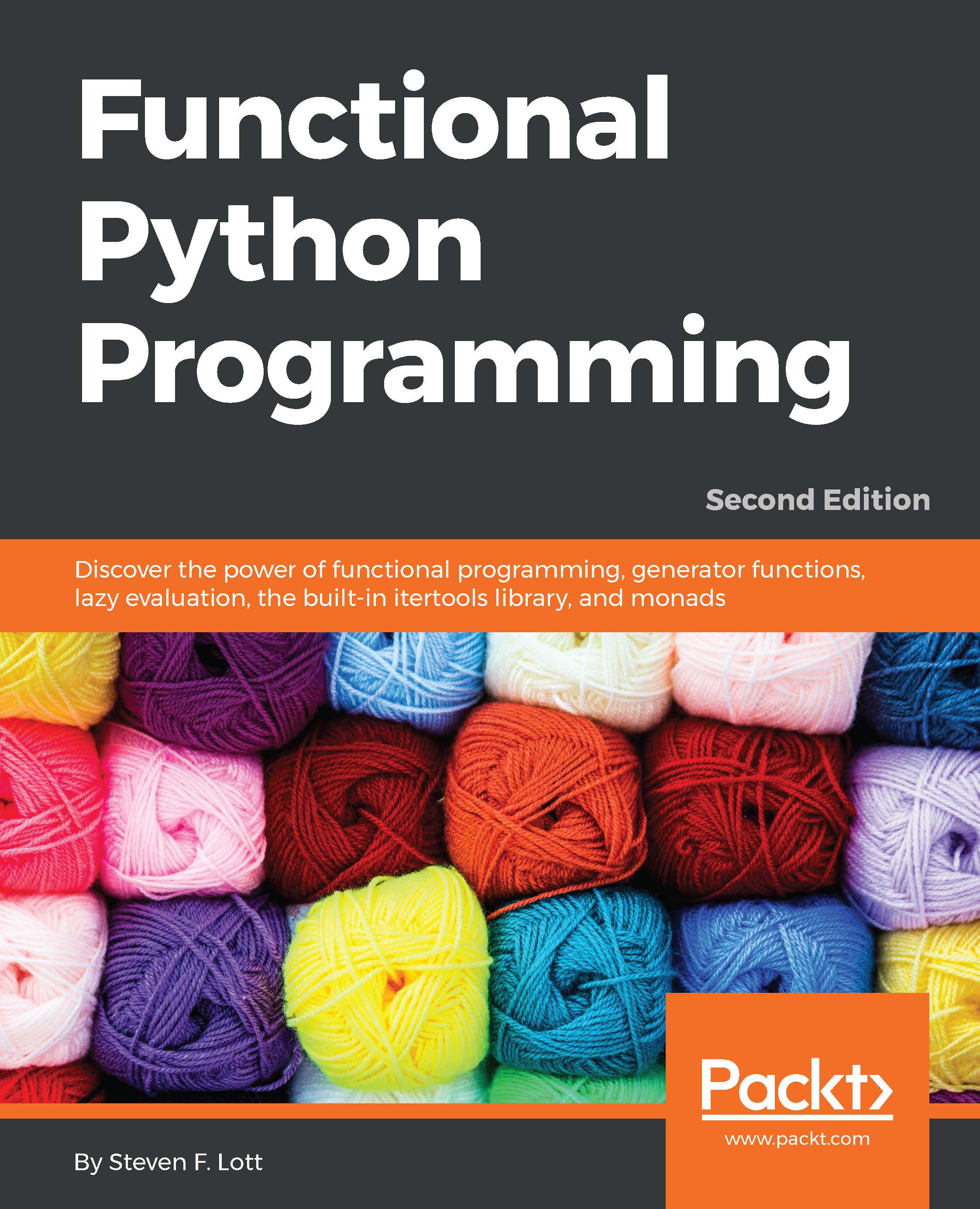Using strings
Since Python strings are immutable, they're an excellent example of functional programming objects. A Python str object has a number of methods, all of which produce a new string as the result. These methods are pure functions with no side effects.
The syntax for str method functions is postfix, where most functions are prefix. This means that complex string operations can be hard to read when they're co-mingled with conventional functions. For example, in this expression, len(variable.title()), the title() method is in postfix notation and the len() function is in prefix notation.
When scraping data from a web page, we may have a function to clean the data. This could apply a number of transformations to a string to clean up the punctuation and return a Decimal object for use by the rest of the application. This will involve a mixture of prefix and postfix syntax.
It could look like the following command snippet:
from decimal import * from typing import Text, Optional def clean_decimal...


























































